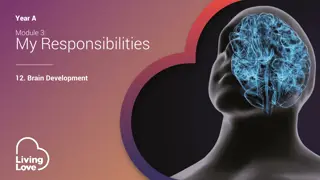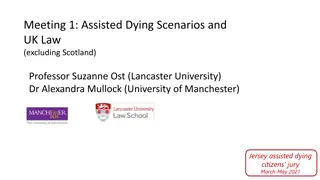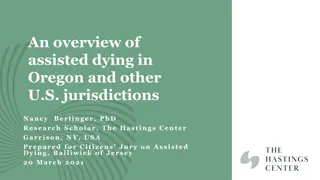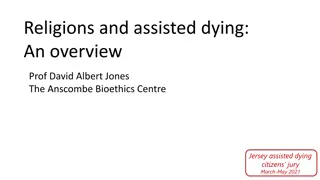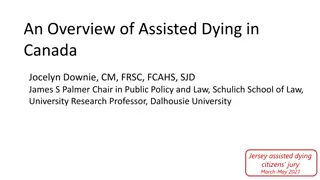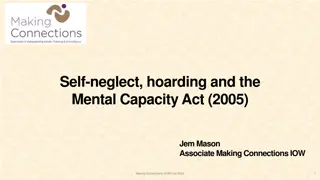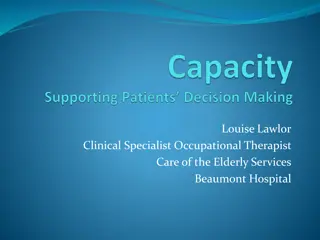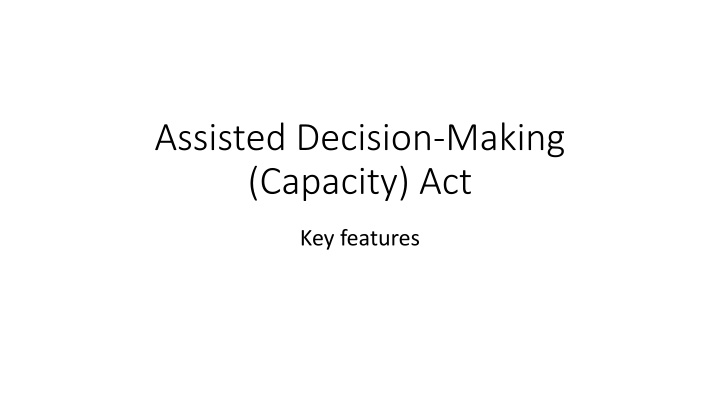
Decision-Making Capacity in Legal Context
Explore the key features of Assisted Decision-Making (Capacity) Act and the concept of legal capacity, emphasizing the ability to make decisions based on understanding, retaining, and communicating relevant information. Learn about tiered layers of support for decision-making and the transition from traditional models towards a more inclusive approach.
Download Presentation

Please find below an Image/Link to download the presentation.
The content on the website is provided AS IS for your information and personal use only. It may not be sold, licensed, or shared on other websites without obtaining consent from the author. If you encounter any issues during the download, it is possible that the publisher has removed the file from their server.
You are allowed to download the files provided on this website for personal or commercial use, subject to the condition that they are used lawfully. All files are the property of their respective owners.
The content on the website is provided AS IS for your information and personal use only. It may not be sold, licensed, or shared on other websites without obtaining consent from the author.
E N D
Presentation Transcript
Assisted Decision-Making (Capacity) Act Key features
Background Art 12 UNCRPD equality before the law for people with disabilities New legislation to that effect needed in order to ratify ADM (Capacity) Act passed 2015 Repeals Lunacy Acts, replaces Wards of Court system Presumption of capacity Substantive commencement expected early 2020
Key features of ADM Act Presumption of legal capacity Functional test of capacity, in relation to ability to take particular decisions No longer all or nothing , or based on diagnosis or status Tiered layers of support to take one s own decisions Guiding principles in the Act for supporters/interveners Focus is on helping realise the person s will and preferences, not best interests System overseen by Decision Support Service Codes of Practice. Register of agreements. Investigation of complaints
What is capacity Legal capacity is the capacity to take decisions Not the same as cognitive capacity Not based on status/diagnosis. Functional test of capacity to make A particular decision At a particular point in time A person may have capacity to make some decisions, but lack capacity to make others A person may have fluctuating capacity over time
Decision-making capacity This means the ability to understand, at the time of a decision, the nature and consequences of the decision in the context of the available choices A person has capacity to take a decision if they can Understand the information relevant to the decision Retain that information long enough to make a choice Use or weigh the information to make the decision; and Communicate their decision
Tiered layers of support Next of kin no legal role to take decisions on someone s behalf Tiered system of support to exercise capacity People whose capacity is, or may become, in question can get support to make certain decisions or certain types of decisions Decision-making assistant Co-decision maker Decision-making representative court process Power of attorney Only move to higher level of support if lower level is insufficient
Support to exercise capacity Decision-making assistant, co-decisionmaker Supporter s role is to assist the person reach their own decision, e.g. by providing information relevant to the decision, presented in a way the person can understand Includes info on the reasonably foreseeable consequences if they take the decision if they don t take the decision Must adhere to guiding principles of Act
Guiding principles (1) Presumption of capacity unless the contrary is shown Person not considered unable to take a decision unless all practicable steps have been taken, without success, to help them do so Making an unwise decision does not indicate being unable to make a decision
Guiding principles (2) Principle of minimum intervention limited and proportionate Supporters/interveners Must encourage and facilitate the person to participate in the decision Must act in good faith at all times and for benefit of person Must be guided by person s will and preference, beliefs and values, what they would be likely to want to do not what support person thinks is their best interests May consider views of Those engaged in caring for the relevant person Those with bona fide interest in the welfare of the relevant person Healthcare professional
Implications for NCSE? Relevant to NCSE work in relation to School students aged 18+ Adult education Assessment of Need of over 18s Part 2 Disability Act Over 18s presumed to have capacity to make own decisions, give consent, unless otherwise established Ensure standard procedures are ADM-compliant Engagement with decision-making assistants, co-decision-makers, decision- making representatives Referrals to Decision Support Service for investigation if concerns



